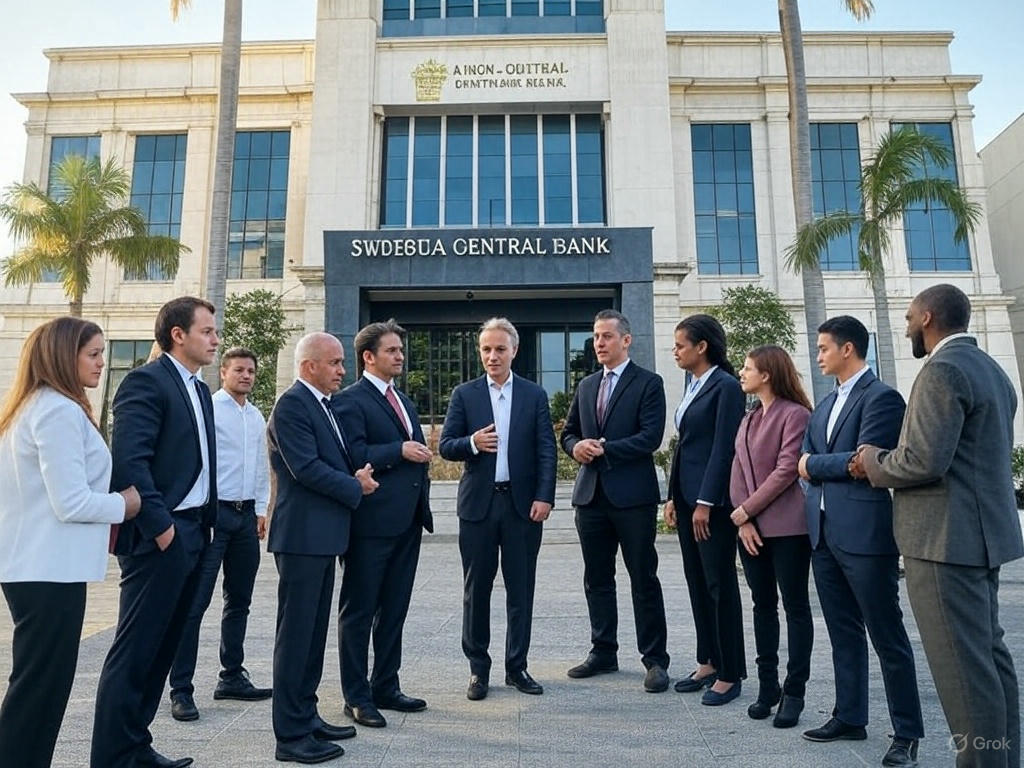By Lubwama S.
Washington, DC – January 15, 2025: The International Monetary Fund’s (IMF) Executive Board has completed its 2024 Article IV consultation with Malta, endorsing the staff appraisal on a lapse-of-time basis. The consultation sheds light on Malta’s remarkable economic trajectory, emerging challenges, and policy recommendations for fostering sustainable growth.
Malta’s Economic Resilience Amid Global Turbulence
Malta has demonstrated extraordinary economic resilience over the past decade, achieving some of Europe’s highest growth rates. Export-driven service industries—notably tourism and online gaming—have played pivotal roles in driving this performance. While growth is forecasted to moderate, it will likely remain robust in the near term, supported by tight labor markets and an influx of foreign workers and tourists. Inflation, which has subsided to approximately 2%, persists in the service sector, reflecting ongoing capacity pressures.

The government recently launched “Malta Vision 2050” to establish the country’s long-term strategic direction.
However, this growth comes at a cost. Rising population density has strained Malta’s infrastructure and public services, raising concerns about the sustainability of its labor-intensive growth model. The financial sector remains stable and resilient, weathering successive shocks, but structural challenges could impede long-term potential.
Risks and Projections: Balancing Growth and Uncertainty
Malta’s medium-term outlook remains favorable compared to its European peers, yet risks abound. Externally, the ongoing Russia-Ukraine war, Israel-Gaza conflict, and increasing geoeconomic fragmentation pose significant threats. Domestically, wage growth exceeding expectations could lead to higher inflation. Conversely, an unexpected surge in tourism exports could bolster growth but exacerbate infrastructure strains.
Despite these challenges, Malta’s external position in 2024 is substantially stronger than fundamentals suggest, highlighting the need for a balanced approach to growth and sustainability.
Policy Recommendations for Sustainable Growth
Fiscal Consolidation and Energy Subsidy Reform
The IMF praised Malta’s commitment to fiscal consolidation, projecting a decline in the overall deficit to 2.75% of GDP by 2029. Public debt is expected to stabilize around 50% of GDP, well below the EU’s 60% ceiling. However, energy subsidies remain a significant expenditure, accounting for 20% of the fiscal deficit. The IMF recommends a gradual exit from fixed energy pricing, favoring targeted subsidies and market-based pricing mechanisms. Savings should be redirected to green investments, healthcare, and innovation.
Corporate Income Tax Reforms
In line with the EU’s Pillar II Directive, the IMF urges Malta to outline a roadmap for corporate income tax (CIT) reform. Delayed implementation risks ceding revenues to jurisdictions adopting the directive earlier. The roadmap should address CIT for both foreign and domestic entities, providing clarity for taxpayers and investors.
Enhancing Judicial Reforms and Anti-Money Laundering Efforts
The IMF welcomed Malta’s progress in strengthening its anti-money laundering (AML) framework and judicial reforms. Continued vigilance is necessary to combat emerging threats such as trade-based money laundering. Efficiency in the justice system and transparency in judicial appointments are critical to furthering reform.
Driving Innovation and Climate Action
Sustained economic growth hinges on productivity and innovation. The IMF highlighted Malta’s strides in fostering innovation through grants, tax incentives, and the Malta Venture Capital Fund. Yet, efforts to improve educational outcomes and digital skills are essential for maintaining a skilled workforce. Reducing gender gaps and increasing female workforce participation remain priorities.
On climate, Malta aims for a 19% reduction in emissions by 2030 under the Effort Sharing Regulations. Achieving these ambitious goals requires comprehensive mitigation measures, public engagement, and updated adaptation plans to address climate vulnerabilities.
Financial Sector Stability
Malta’s financial system remains robust, but risks tied to real estate exposures warrant attention. The IMF recommends stricter macroprudential policies, including raising sectoral systemic risk buffers, to address potential vulnerabilities. Enhancing cyber risk resilience in financial institutions is also paramount.
Looking Ahead
Malta’s economic achievements underscore its resilience and adaptability. However, sustaining long-term growth demands a shift toward a productivity-driven model, underpinned by innovation, fiscal prudence, and environmental sustainability. As global uncertainties persist, Malta’s ability to navigate challenges will define its economic future.




